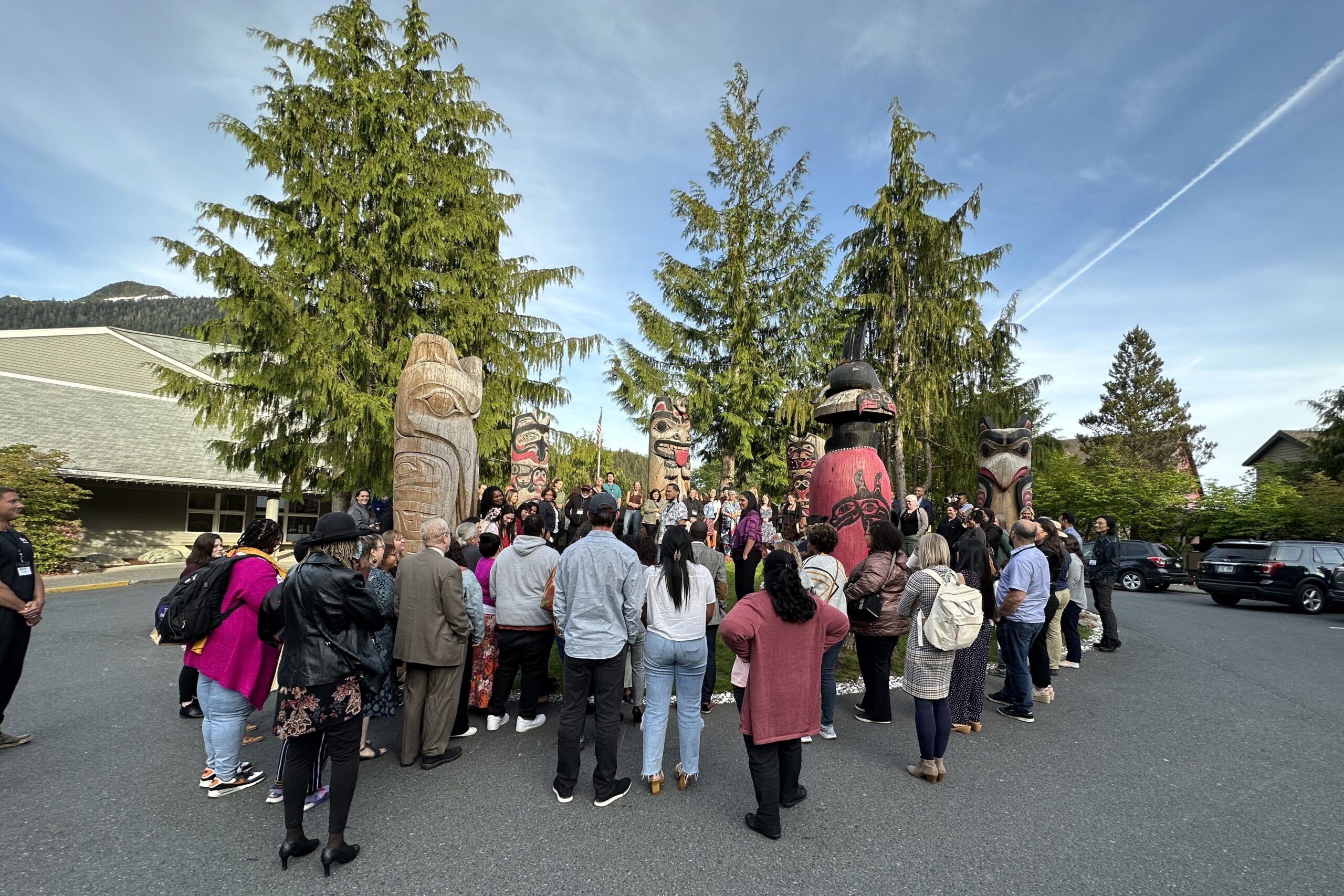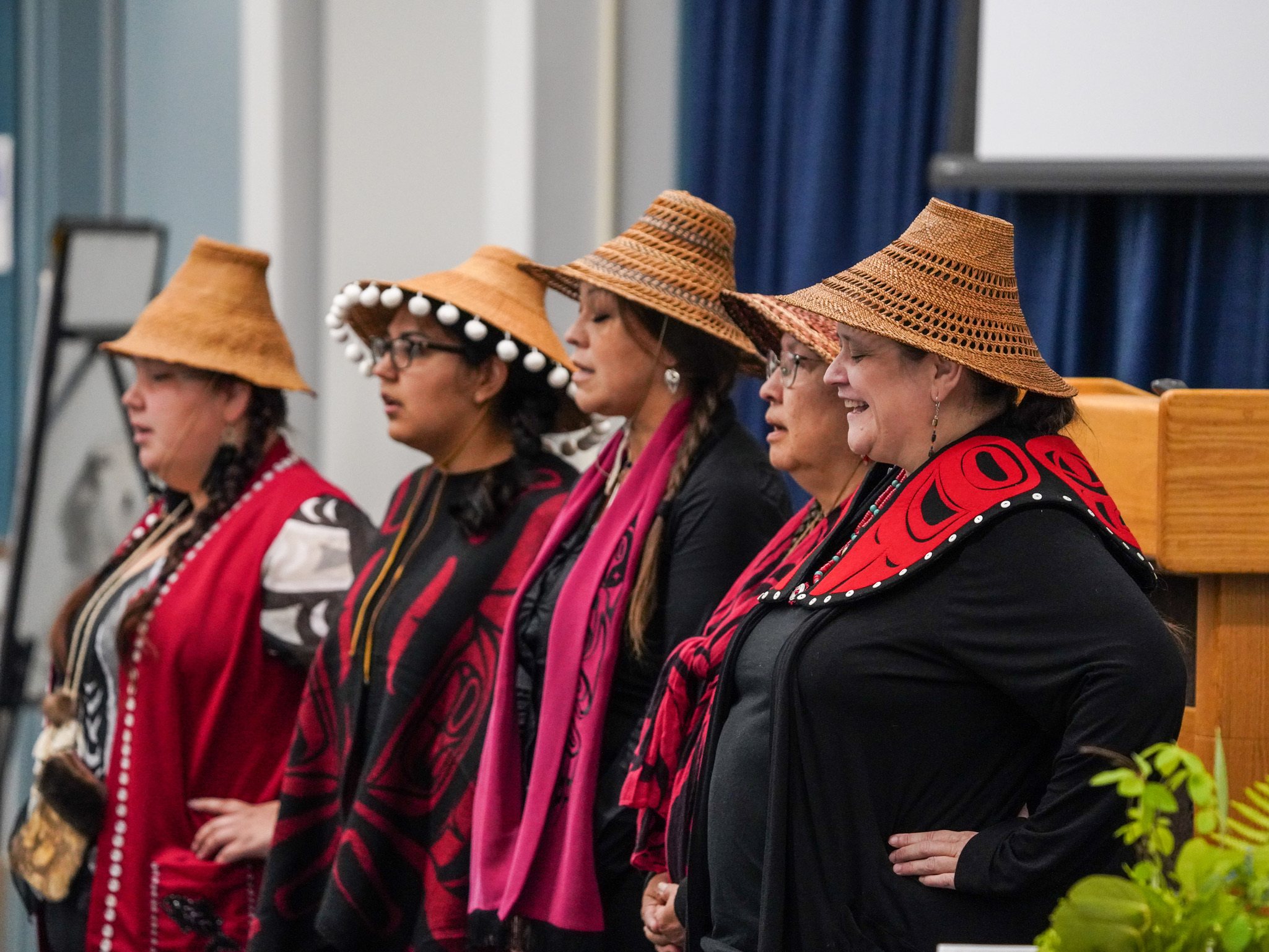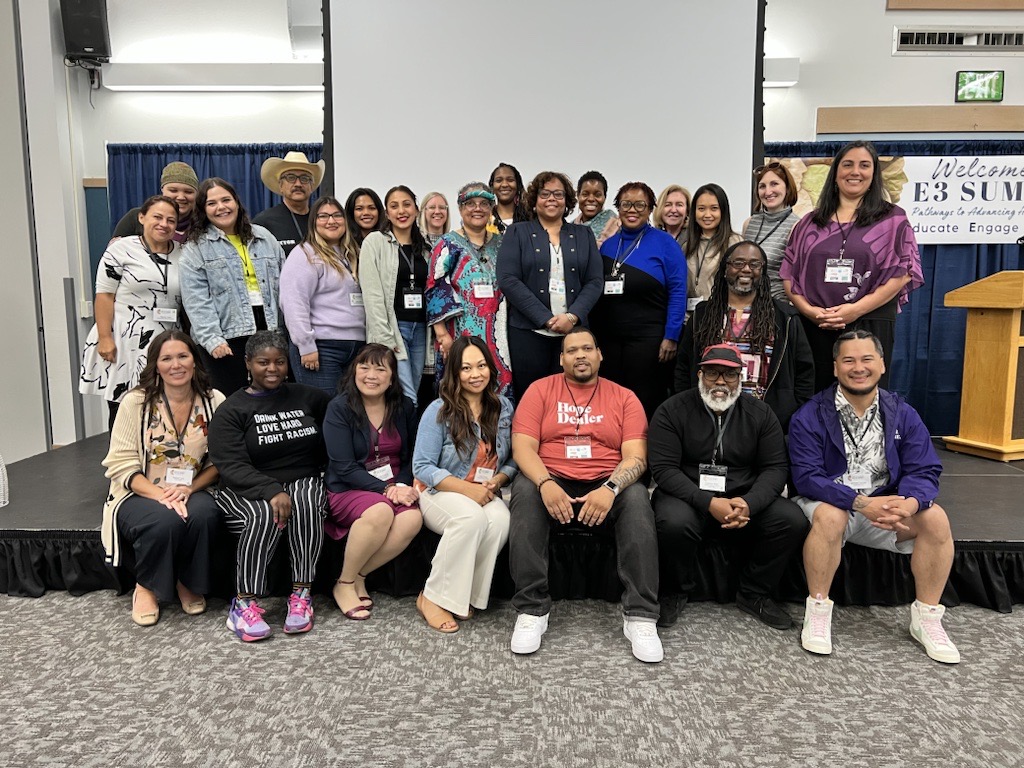Stories Are Part of Our Culture, and Culture is Essential for Health Care
Over the month of June, the Community Solutions for Health Equity (CSHE) team had the opportunity to travel to Ketchikan, Alaska to attend the E3 Health Summit hosted by the Ketchikan Wellness Coalition. The summit was designed for those committed to bringing quality health care and health care services to underserved and often underrepresented populations. The three-day event created spaces for community members, health care providers and other organizations to share their perspectives on what it takes to create a more equitable health care system.
As we sat through the different sessions, one thing became quite clear: Stories are part of our culture, and culture is essential for health care.

Our first day was packed with stories from different community members of diverse cultures expressing what their individual experiences have been with the health care system. We heard stories from people trying to manage their addiction and trauma. They spoke in great detail about how their interactions with the health care system made them feel unwelcomed, unsupported, and unseen. The speakers opened up about the struggles they faced with access to the health care they needed throughout their journeys and how they found strength in community and people who believed in them. The stories they shared highlighted the miscommunication, lack of access, and overall discrimination they faced every turn they made within the health care system. From not knowing where to seek the proper help, to not being able to properly communicate with the people whose responsibility is to aid them, these brave community members all said the same thing: our health care system was not designed with everyone in mind.
Towards the middle of our first day, most of our conversations and contributions were focused on letting community express their needs their way. Each of the volunteers that bravely shared their story articulated how their culture has been healing and how they seek to find that medicine in today’s broken health care system. The stories shared from community members expressed the realities of drug addiction, post-traumatic stress, anxiety and depression, but they also uplifted the importance of community support and healing.
Dr. Semerit Strachan from the Cultural Wellness Center expressed how this journey back to culture and cultural practices of medicine was like “moving from a sea of uncertainty to the island of the known.”
This sentiment so beautifully expressed by Dr. Semerit Stratchan resonated towards the end of our first day when presenters showed data on a case study conducted by Healthier Here called In Good Health. The data recollection focused on gathering community definitions of what it means to be “in good health.” The study showcased how communities of culture have defined health in their own terms and how they have healed themselves throughout history. These communities of culture share practices and rituals that have been passed down from generation to generation as pillars of their identity. As Mayra Gingrey, the Chief Equity & Strategy Officer for Healthier Here said in her presentation, “Community knows how to heal itself. All we have to do is listen.”

On our second day, we shifted gears to get the perspective from health care professionals. Panels and keynote speakers highlighted how providers have to go above and beyond to meet the specific needs of the communities they serve. During that day, we heard from Dr. Charlie Jose, a Family Medicine physician at PeaceHealth Ketchikan, that expressed the burden he felt as a Filipino living and serving the community. The prevalent Filipino community in Ketchikan has felt disenfranchised and underrepresented from the health care system for many years. Dr. Jose showcased several examples of how the importance of understanding culture and language is crucial to health care access and equity. Raised by a Filipino family, Dr. Jose shared how his patients felt seen by him and how that helped foster trust in him and the system he represents. On that same panel, we heard Dr. Angela Michaud, a Native American Chiropractor, express how she always kept fresh berries and other foods in her office for people to feel welcome and promote a holistic approach to health care. Dr. Michaud shared how her family spends some weekends berry picking and interacting with nature as a way to reconnect, “it’s culture, it’s medicine, and it heals,” she said.
The second day showed us that health care systems are composed of individuals like Dr. Jose and Dr. Michaud who dedicate their lives to creating culturally intentional spaces for themselves and the communities they serve. The battle against disparities is exhausting to those serving their communities through the health care system. Health care providers and community organizers were encouraged to remind themselves why they do what they do in order to keep pushing past the barriers the system creates for them.

Our last day at the E3 Health Summit, a few CSHE partner organizations were able to beautifully showcase how their work finds the Sweet Spot between institutional knowledge from the health care system and community knowledge. CSHE community partners included Refugee Community Partnership, West Marion Community Forum, Padres e Hijos en Acción, Ketchikan Wellness Coalition, Breastfeeding Hawaii, Advocates for Justice and Education and Promise Neighborhoods of Lehigh Valley. Whether it was through language access, community building or incorporating traditional cultural practices within their programs, CSHE partners showcased how communities have different solutions and methods to address health care inequities. Through the presentations, partners shared how transformative and empowering it can be to have a community-centered approach to health care and how that can have lasting and meaningful effects in their local health care systems.
Our time at the E3 Health Summit allowed us to listen to community voices, gather a deeper understanding of the hurdles medical professionals face when addressing cultural communities’ needs, and how our partners work to transform the health care system every single day. We also learned that to advance the work we need to find avenues to engage deeper with health care systems administrators. As we deepened our connections with the partners and their communities, we left Ketchikan, Alaska with a stronger conviction to keep our work going. This summit perfectly showcased the values and principles of CSHE: the collective power and solutions to heal live within communities.
We deeply appreciate and congratulate Alma Manabat Parker, Rachel Lucy, and Jackie Yates for including CSHE into such a powerful and transformative space within the Ketchikan community.